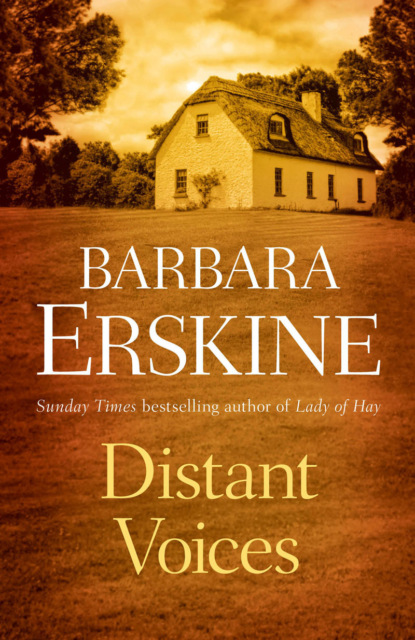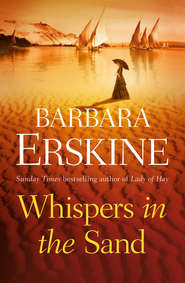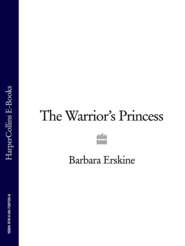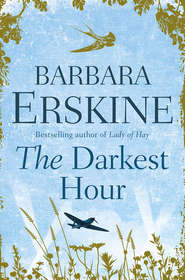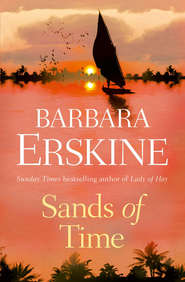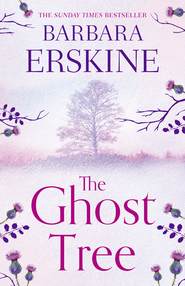По всем вопросам обращайтесь на: info@litportal.ru
(©) 2003-2024.
✖
Distant Voices
Автор
Год написания книги
2019
Настройки чтения
Размер шрифта
Высота строк
Поля
‘Do you remember your grandmother?’ Jan glanced at him curiously.
He gave a short laugh. ‘Hardly. She died long before I was born.’
‘I’m sorry. Of course.’
‘You’ve seen her self portrait? The one in the town gallery?’
Jan nodded. ‘She was very beautiful.’
‘Yes.’ He turned onto the bypass and accelerated away from the traffic. ‘I suppose the idea is to bring your book out in time for the exhibition they’re planning for next year to mark the fiftieth anniversary of her death.’
‘It will be wonderful to have so many of her paintings together.’
‘Even the ones in the States. Quite.’ His voice was dry. ‘We’re almost there.’
He pulled the car around the back of the house and they climbed out, looking round. The house seemed as deserted as before. There was no sign of life at all as Simon pulled out his key and opened the back door.
‘No one in here, anyway.’ He walked ahead of her into the kitchen.
Jan looked round. Oak dresser, table, chairs, deep sink, rusty range. It was obvious that no one had cooked here since that day in the war when David Seymour had walked out of the house after his wife’s funeral, locked the door and gone back to his squadron.
She could feel her stomach clenching with nerves. ‘Perhaps they are camping in some other part of the house.’
‘Perhaps.’ Simon reached into his pocket and produced a torch. He did not switch it on however. Enough sunlight filtered through blind and shutter for them to see clearly as they walked slowly through the ground floor. Outside the dining room door he stopped. ‘You heard them in here?’ He had his hand on the knob.
She nodded. She knew what they would find. Only dust and cobwebs decorated the room which had glittered with such life. ‘I suppose you think I’m going mad?’
He grinned. It made him look suddenly and unexpectedly approachable. ‘No more than dozens of other people who have seen and heard it too.’
She stared at him. ‘You mean you know about it – what I saw? You knew! Your grandfather knew?’
He nodded. ‘Ghosts. Memories trapped in the walls. Who knows. None of the people in the village will come near this house. Which suits us fine.’ He pulled the door closed. ‘Come and see Stella’s studio.’
He gave her no chance to say anything as he strode back to the kitchen and out of the house. She followed him, almost running, over the long grass of what had once been the lawn and through an overgrown shrubbery to a low, thatch-roofed building which overlooked a reedy pond. He reached for the key which was hidden beneath a moss-covered stone. ‘I can’t think why this place hasn’t been vandalised. But it seems Stella’s secrets are still her secrets,’ he said shortly. He stood back and let Jan go in ahead of him. ‘Did my grandfather not tell you about this place?’
Jan shook her head. She stared round.
The studio stood on the edge of the water, its large windows allowing the sky and the willows and the glittering ripples to explode into the room, filling it with light. All Stella’s painting equipment was still here: easels, canvases, paints, sketchbooks curled with damp, the pages stuck together, an ancient sofa, draped in a green silk shawl, the fringe trailing on the ground, black with mildew, vases of flowers, long dried and faded beyond recognition, on the table a straw sun hat amongst the scattered brushes and pencils and dried-up tubes of paint.
Jan bit her lip, fighting the lump in her throat. ‘It’s as though she only left a few minutes ago.’
‘He would never let it be touched.’
She picked up a palette knife from the table. The lump of paint dried on its tip matched exactly the colour in the foreground of the painting on the easel.
‘What do you think really happened that night?’ She was staring out at the water. A pair of mallard swam into view, the pond rippling into diamond rings around their gently paddling feet.
‘No one knows for sure.’
‘The article in the American magazine said that she was pushed. That it was murder.’ She turned and looked at him. He was very handsome, Stella’s grandson, with her colouring, if the portrait in the gallery was anything to go by, even if he had inherited his grandfather’s nose. ‘It said that she was pregnant by another man. An American.’
Simon’s eyes narrowed. ‘Grandfather should have sued them. But he didn’t want to. He didn’t want anything to do with the article. He thought everyone would forget, and her memory would be left in peace.’
‘Instead of which I come along.’
‘Instead of which you come along.’
‘He told you –’
‘To tell you everything. I know.’ He had strolled over to the windows and was looking out, his shadow falling across the floor to the green shawl. He sighed. ‘I expect you know about the letters. To the GI. And that he had sent so many of her drawings and paintings back to the States. That rather supports the gossip in a way.’ He turned and faced her. ‘What do you think you heard in there? In the house?’
‘People? A tape? A radio? Echoes? Ghosts?’ She could feel her skin beginning to shiver even though it was warm in the studio. The air was heavy suddenly with the scent of oil paint and linseed and turpentine.
‘Did you hear a woman laughing?’
‘Yes, I did.’
‘And she sounded happy?’
‘I heard her calling him. Your grandfather. She sounded ecstatic. And then I heard her fall.’ She paused. She had heard the voice, but where had David Seymour been? Downstairs in the dining room with the others, or had he appeared suddenly on the landing next to her? She bit her lip. No. Surely it had been a happy voice. ‘I think it was an accident. I think she wanted me to know that. You’ve heard her too?’
He nodded. ‘I think at that last dinner party they were enjoying themselves. They were all deliriously happy. Stella and Grandfather and John and Sarah and the Daniels and Peter Cockcroft. It was wartime. There was rationing. So many of the fit young people were gone, so many of their friends had died, but Grandfather had been invalided out after being terribly wounded. He was safe. He had recovered. They were all there and they were happy. After my father was born Stella had hoped and hoped for another child but none came. Then suddenly Grandfather was back and she was pregnant again. They were, celebrating. It was the happiest moment of her life.’ Simon turned away from the window and looked at Jan. ‘I’m guessing. No, it’s more than that. I’m almost certain that’s what happened. Grandfather trusts you. He likes you and I think that when he heard that you had seen something – heard something – in the house, he knew that she trusted you too. Only nice people hear her laugh –’ He stopped abruptly as Jan’s eyes flooded with tears. ‘Oh Miss Haydon – Jan – I’m sorry, I didn’t mean to upset you.’ He delved into the pocket of his jacket and produced a handkerchief. It was slightly painty.
Jan wiped her eyes. ‘You are an artist too?’ She was feeling rather silly.
‘A bit. If I’ve inherited half her talent I count myself a very lucky man.’ Gently he steered her to the sofa. ‘Sit down a minute. Get your breath back.’
‘How could he bear to think of selling the house?’
‘He can’t. Not really. He’d have done it years ago if he were going to. After the inquest he went back to the war even though he wasn’t really fit – I don’t suppose they asked too many questions – they needed all the men they could get. As far as I know he never came back here, but I think he must still love the house in a way. And the house must have happy memories as well as sad ones. They shared so much here. Besides, don’t you feel it? She’s still here –’ He gestured at the easel. It was another self portrait, this time in Edwardian dress, unfinished, a few details completed: the face, which was vibrant, happy, glowing with life; the sparkling jewels around her throat and wrists; her hands, the ostrich feather fan …
As they sat down Simon had left his arm around Jan’s shoulders. She was shivering. The sun had moved a little, and the studio was no longer lit across the water. It filled with weaving, drifting, green light.
‘If only she could speak to us,’ he went on. ‘Give us a sign. Something to tell Grandfather that the baby was his. It’s such a sad story, but at least then that last awful doubt would be gone and he would know once and for all that it was an accident; that she didn’t, couldn’t, have had any reason at all to kill herself.’
Jan smiled. ‘What sort of sign?’ This was scarcely objective research, but she was beginning to enjoy the feeling of his arm, so lightly draped over the back of the sofa.
‘I don’t know. Move something. Say something. I’ll leave it to her. Anything.’ He grinned. ‘Listen, Grandfather asked me to take you back to tea. He wants to lend you her letters and diaries.’
‘Then he really does trust me.’
Simon nodded slowly. ‘I told you. He wants the whole story of her life to be known at last. He said he was too old for them to hang him.’
‘But that’s admitting –’
‘No. It’s not admitting anything, except that he loved Stella more than life itself.’ Simon stood up. He held out his hand. ‘Let’s go back to the house.’
For a moment she didn’t move, then, reluctantly, she stood up. For a second she stood looking down at the face on the easel, then she followed him outside.





